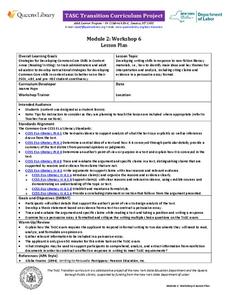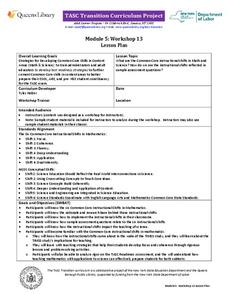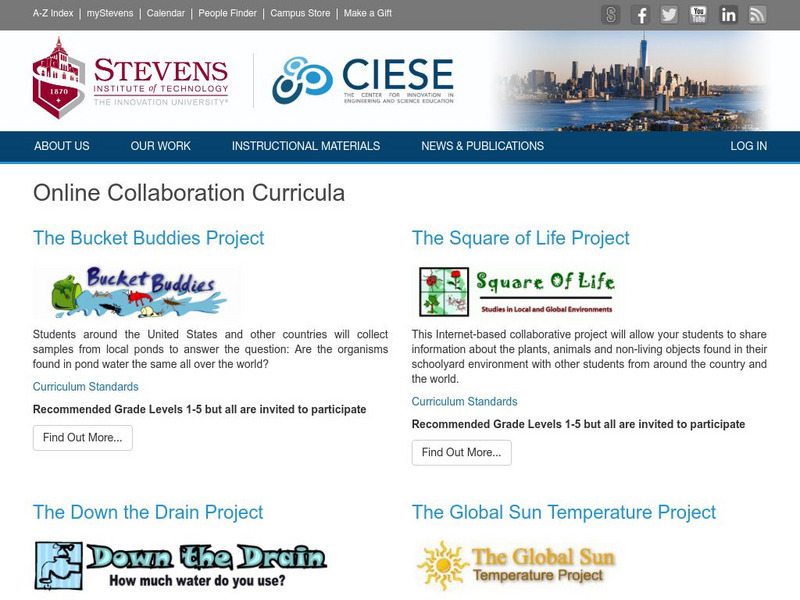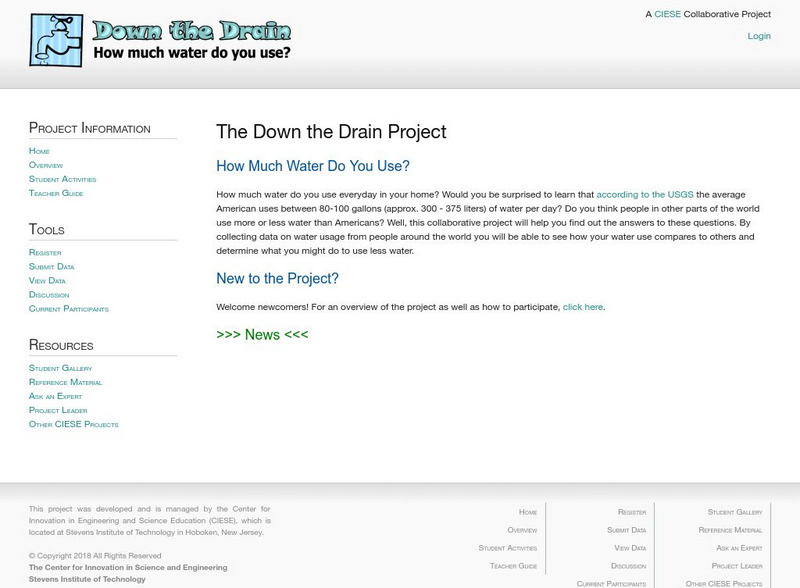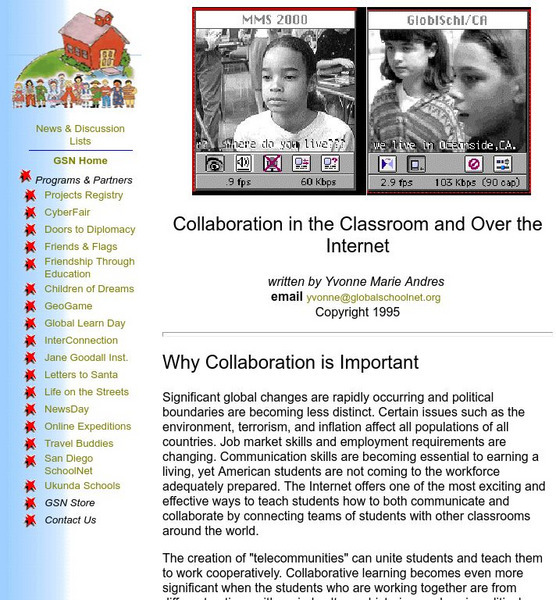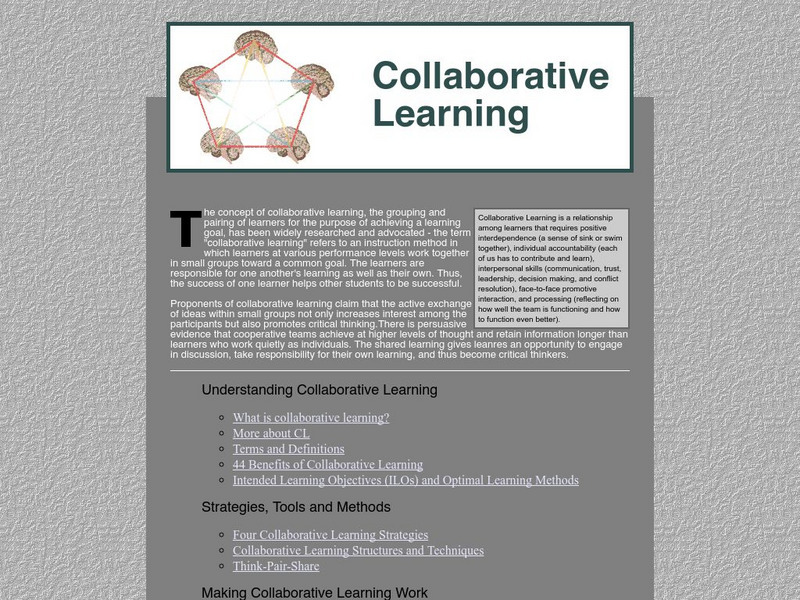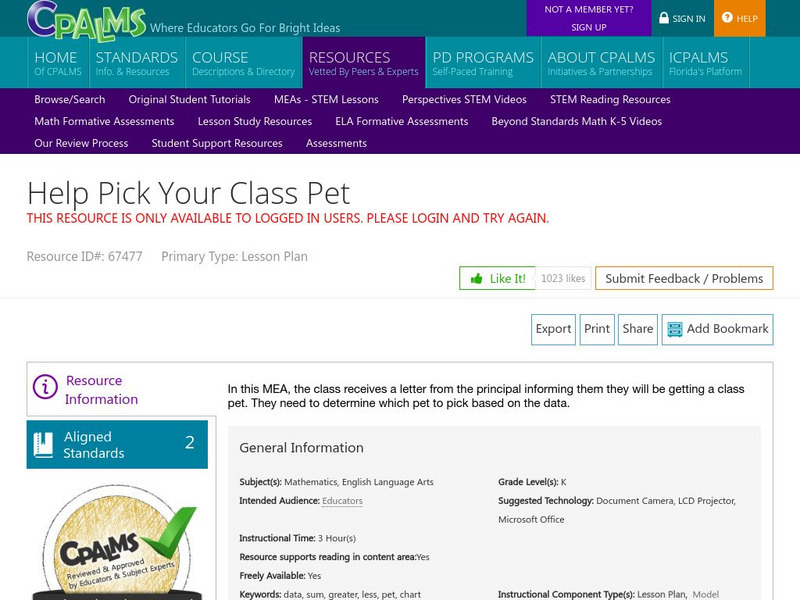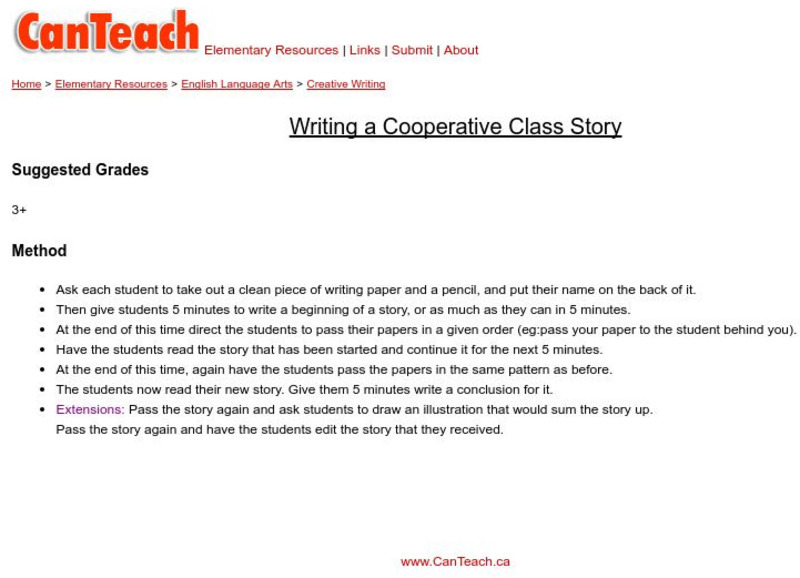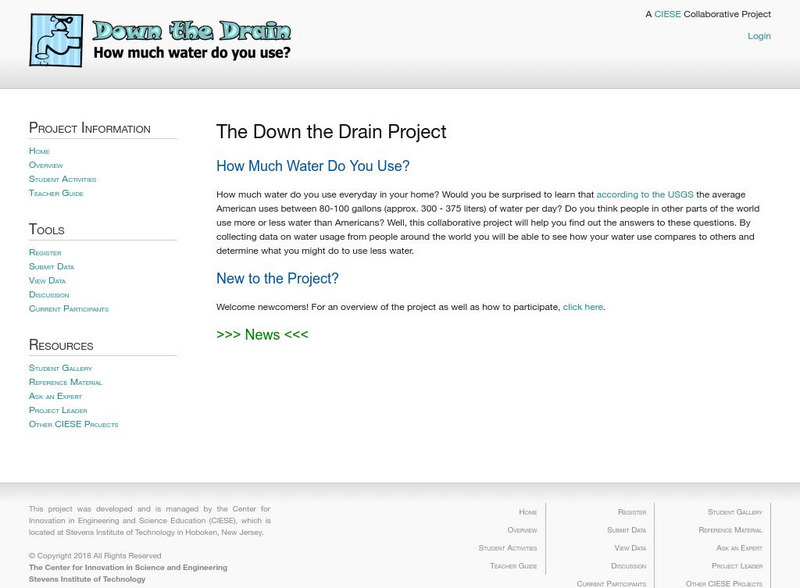New York State Education Department
TASC Transition Curriculum: Workshop 11
You'll C-E-R a difference in classroom achievement after using a helpful instructional activity. Designed for economics, civics, government, and US history classes, participants practice using the CER model to craft arguments about...
EngageNY
TASC Transition Curriculum: Workshop 6
Is a college education necessary for success in today's world? The class investigates the question, along with others at the end of the sixth workshop in a 15-part series. The lesson has four parts with multiple activities and...
Missouri Department of Elementary
R-E-S-P-E-C-T: A Basic Skill
Imagine seventh graders developing a school wide plan to promote respect in their school. That's the vision behind the second instructional activity in the R-E-S-P-E-C-T series. In preparation for designing a school-wide media campaign,...
New York State Education Department
TASC Transition Curriculum: Workshop 13
The six instructional shifts in this workshop definitely move math and science teachers' understanding of instruction. The workshop, 13th out of a series of 15, asks participants to examine sample tests and to look at how the six...
EngageNY
TASC Transition Curriculum: Workshop 8
Lights, camera, action! Math educators consider how to improve their instruction by examining a model of the five-practice problem-solving model involving a movie theater. Participants examine cognitive demand in relation to problem...
New York State Education Department
TASC Transition Curriculum: Workshop 5
Are video games sports? Pupils investigate this question as well as various nonfiction selections to learn more about claims and the support that defines them. All of the selections mimic the rigor on state tests and encourage close...
New York State Education Department
TASC Transition Curriculum: Workshop 7
Designed specifically for math instructors, the seventh workshop of a 15-part series allows time to explore Webb's DOK, ponder open-ended questions, and create lessons to apply what is learned. Teachers craft high-quality math problems...
New York State Education Department
TASC Transition Curriculum: Workshop 10
How have educational standards evolved? Educators of adults examine expectations in the 10th workshop out of 15 to better determine how standards have grown. Participants respond to a variety of sample questions to determine how they...
EngageNY
TASC Transition Curriculum: Workshop 15
What do a cheetah, Audi commercial, and air have in common? They're all topics of an engaging inquiry-based, hands-on workshop for educators about background knowledge, reading strategies, the CER model, and argumentative writing. The...
Center for Innovation in Engineering and Science Education, Stevens Institute of Technology
Ciese: Collaborative Projects
Using a variety of science topics, these projects link your class with classes around the world in data collection and analysis. There are projects recommended for all grade levels. Begin dates and end dates are listed to help in...
ReadWriteThink
Read Write Think: Collaboration of Sites, Sounds: Wikis to Catalog Protest Songs
This lesson makes a connection to popular culture by asking students to research and analyze contemporary and historic protest songs and to catalogue them in a class wiki.
Center for Innovation in Engineering and Science Education, Stevens Institute of Technology
Ciese Collaborative Projects: International Boiling Point Project
An Internet project designed to determine the greatest influence on the boiling point. After reading the project instructions and performing the experiment, submit your data and compare your results to other classes from around the world.
Center for Innovation in Engineering and Science Education, Stevens Institute of Technology
Ciese Collaborative Projects: Down the Drain: How Much Water Do You Use?
Meet another classroom and study how much water your class uses compared to another class that may be in another part of the world. Through a variety of activities and gather data be able to collaborate with others via the internet to...
Other
Global School Net: Collaboration in the Classroom and Over the Internet
This is a good resource for learning how to collaborate with other classes over the internet. This article provides good advice for how to get the most benefit out of your collaboration efforts whether they be in the classroom or over...
Other
Gdrc: Collaborative Learning
This site provides a thorough introduction to collaborative learning including terms and definitions, benefits of collaborative learning, strategies, tools, methods and making collaborative learning work.
CPALMS
Help Pick Your Class Pet
[Free Registration/Login Required] During this MEA simulation, kindergarten students will be given the power of slelecting a classroom pet. Students, working in collaborative groups, must collect data about different potential classroom...
Can Teach
Can Teach: Writing a Cooperative Class Story
In this lesson plan, students will write a cooperative class story, using brainstorming and editing skills. Lesson plan indicated for 3rd grade and above.
Center for Innovation in Engineering and Science Education, Stevens Institute of Technology
Ciese: Down the Drain Project
Teachers can start this project at any time and no registration is required. Students collect data about water usage for themselves, their homes and their class. They analyze it, make predictions about it, and submit the data to the...
Center for Innovation in Engineering and Science Education, Stevens Institute of Technology
Ciese Collaborative Projects: The Global Water Sampling Project
By testing your local water quality, you will be able to compare your results with students around the world. Register your class, and follow the project instructions. Additional teacher resources, references, and Ask-an-Expert sources...
ReadWriteThink
Read Write Think: Exploring Before, During, After Sequencing
From Read-Write-Think, here is a three-day lesson plan in which a class collaborates to produce a book, focusing on carving a jack-o-lantern. The emphasis is on teaching the skill of sequencing events.
Other
Class Web: Website Collaboration
Use this site to explore Class Web to assist teachers in creating classroom websites and collaborate with other educators.
Alabama Learning Exchange
Alex: All About Us: Writing and Presenting Poetry
In this lesson students write a poem about their class and classmates. Students then transfer their poems to individual presentation slides which are combined with their classmates' slides to create a class slideshow presentation. This...
EL Education
El Education: Collaborative Culture: Norms
This lesson discusses the implementation of classroom norms. These norms are inclusive and should transcend to the norms of the school.
Other
Tom Wujec: The Marshmallow Challenge
Collaborative exercise involving marshmallows, spaghetti, tape, and string can start events and classes off in a creative frame of mind.

